CS211 Course Information
Welcome to CS211!
IMPORTANT: If
you missed the first lecture, but plan to take CS211, then you need to get
registered onto CMS in order to download the first homework, which is due Sep.
6. To register, send Bill Hogan (email address below) an email with your
NetID. Within a
few hours you should then have access to CMS.
Course Description
| Name |
COM S 211/ENGRD 211:
Object-Oriented Programming and Data Structures |
| Semesters Offered |
fall, spring, summer |
| Credit Hours |
3 |
| Prerequisites |
COM S 100 or an equivalent course in Java or C++ |
| Grade Option |
Letter or S/U |
| Lectures |
Tues/Thur, 10:10-11:00 AM, Olin Hall 155 |
| Sections |
Students must attend one 50 minute section per
week |
| Course Description |
Intermediate programming in a high-level language and introduction to
computer science. Topics include program structure and organization, modules
(classes), program development, proofs of program correctness, recursion,
data structures and types (lists, stacks, queues, trees), object-oriented
and functional programming, and analysis of algorithms. Java is the
principal programming language. |
| Course Website |
http://www.cs.cornell.edu/courses/cs211/ |
| CMS URL |
http://cms3.csuglab.cornell.edu/ |
| Course Newsgroup |
cornell.class.cs211 |
In CS211, you will learn:
- Concepts in modern programming languages, which include classes, objects, inheritance, recursion, and generic programming.
- Data structures such as lists, stacks, queues, trees, hash tables, and collections.
- Java Foundation Classes (JFC), which are in the Java Application Programmer Interface (API).
- The ability to produce correct, well-structured, and readable code.
A complete listing of the course topics that were covered in Spring of 2007 can be found at
http://www.cs.cornell.edu/courses/cs211/2007sp/lecturenotes.html.
CS211 this semester (Fall 2007) will be similar.
NOTE THAT THE LECTURES AND READING ASSIGNMENTS FOR THIS
SEMESTER WILL BE POSTED ON CMS
Refer to posted advice for information about other introductory programming courses if you need help
in deciding whether or not to take CS211.
Staff
| STAFF |
NAME/EMAIL |
PHONE |
OFFICE |
OFFICE HOURS |
| Instructor |
 |
Paul Francis
francis
[at] cs.cornell.edu |
255-9223 |
4108 Upson |
appt hours Friday 2:30 - 3:30
appointments: e-mail Bill Hogan |
 |
Paul Chew
chew@cs.cornell.edu |
255-9217 |
494 Rhodes Hall |
Thur - 2:00 - 3:00 |
| TAs |
 |
Liwei Chen lc276 [at] cornell.edu |
|
UP 328B |
Thur - 3:00 - 4:00 |
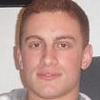 |
Christopher Estela
cde8
[at] cornell.edu |
|
UP 328B |
Mon - 12:15 - 1:15 |
| |
Hyungoo Kang
hk297
[at] cornell.edu |
|
UP 328B |
Wed 12:15-1:15 |
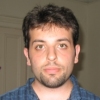 |
Nikos Karampatziakis
nk
[at] cs.cornell.edu |
|
UP 328B |
Mon - 2:30-3:30 |
| |
Yunsong Guo guoys [at] cs.cornell.edu |
|
UP 328B |
Fri 2:00-3:00pm |
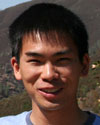 |
Edwin Lai ecl37 [at] cornell.edu |
|
UP 328B |
Fri - 2:00 - 3:00 |
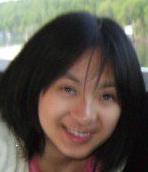 |
Yanwei Lin yl335 [at] cornell.edu |
|
UP 328B |
Tues - 3:00-4:00 |
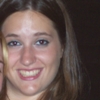 |
Caitie Mccaffrey
cem62 [at] cornell.edu |
|
UP 328B |
Fri - 12:30-1:30 |
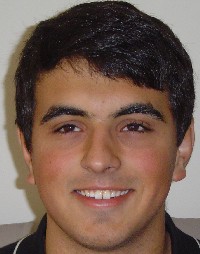 |
George Panayotov
gvp3 [at] cornell.edu |
|
UP 328B |
Wed - 3:30 - 4:30 |
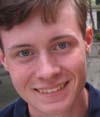 |
Andrew Salamatov
aas59
[at] cornell.edu |
|
UP 328B |
Thurs - 12:00 - 1:10 |
| |
Morgan Ulinski meu3 [at] cornell.edu |
|
UP 328B |
Mon - 10:00-11:00 |
Course
Administrator |
|
Bill Hogan
whh
[at] cs.cornell.edu |
254-8948 |
4119 Upson |
Mon.–Friday 8:30-4:00 |
Teaching Assistants
The teaching assistants (TAs) mainly teach recitation sections and assist with homework and exams. We
encourage you to attend their office hours if you have difficulties in the
course. You can make an appointment with any TA by e-mail.
Consultants
In addition to TAs, there are a number of consultants. These are are
undergraduates who have excelled in their coursework and are employed as
graders and tutors for CS211. See the section on
Consulting for locations and hours, below.
Consulting
Locations and Hours
- Consultants are currently located in Upson 360 most afternoons and
evenings. We also hold hours in the Robert Purcell Community Center (RPCC,
see 2nd table below).
- Consulting runs only when Cornell is in session.
- Consulting hours end at 6pm on a day following assignment due date and
7pm on a prelim day.
- There will be no consulting during official breaks.
- Consulting ends on the last shift on the last week of classes.
Upson 360
| Times (PM) |
Sun |
Mon |
Tue |
Wed |
Thu |
| 1:25 |
|
Mori/Joel |
Kevin/Matt |
Richard Z/Joel |
Kevin/Matt |
| 2:30 |
|
Mori/Adam |
Kevin |
Greg/Richard Z |
Kevin/Jonathan |
| 3:35 |
|
Dan/Joel |
Kevin |
Dan/Greg |
Jonathan |
| 4:40 |
|
Dan/Joel |
Richard Z/Adam W |
Dan/Adam W |
Jonathan/Matt |
| 6:00 |
Richard M |
Atul/Chris |
Richard Z/Adam W |
Atul/Adam W |
David/Chris |
| 7:00 |
Richard M |
Atul/Chris |
Marius/Mike |
Atul/Chris/Adam W |
Marius/David |
| 8:00 |
Richard M |
Adam N/Will |
Marius/Mike |
Justin/Mori/Chris |
Marius/David |
| 9:00 |
Richard M |
Adam N/Will |
Marius/Mike |
Justin/Mori |
Marius/David |
RPCC
RPCC
consulting takes place in the computer lab. Look for a sign on one of the tables
that reads 211 Consulting
| Times (PM) |
Sun |
Wed |
| 2:00 |
|
Anton |
| 3:00 |
|
Anton |
| 4:00 |
Anton |
Anton |
| 5:00 |
Anton |
Anton |
| 6:00 |
Anton |
|
| 7:00 |
Adam N |
Mike |
| 8:00 |
Adam N |
Mike |
| 9:00 |
Adam N |
Mike |
| 10:00 |
Adam N |
Mike |
Consulting Policies
- Occasionally, consultants need to adjust their hours, which are updated
outside their office and on-line.
- Start your assignments early! Ask the consultants for help after you
have tried your best and still cannot figure something out.
- Ask specific questions! The consultants may ask you to leave if you are
doing something else until a question occurs to you.
- Do not expect the consultants to debug your code and proofread your
work. That's your job.
- Do not "hang out" or work in the consulting room.
- Do not store your work in the consulting room.
Want to Be a Consultant?
CS211 and many other CS courses are always looking for great consultants.
In general, CS211 is the launch pad for many courses. In addition, our
best consultants can become undergraduate TAs. If you get at least an A-
in CS211, check out this website:
http://www.cs.cornell.edu/ugrad/Consulting.html.
Reading and Textbooks
Reading assignments are posted along with the lecture notes in CMS. The sources listed here will be on reserve in the Engineering Library in Carpenter Hall.
Required Text
Optional Reading
-
Data Structures and Problem Solving Using Java (3/E), by Mark Allen Weiss,
Addison Wesley, ISBN: 0-321-32213-4, 2006.
See also Weiss's website for additional material. This was the required text used last semester.
-
Program development in Java: Abstraction, Specification, and Object-Oriented Design,
B. Liskov and J. Guttag, Addison-Wesley, ISBN: 0201657686, 2000. This is an excellent
source of material on designing and specifying abstractions.
-
Java Precisely,
P. Sestoft, 2nd Ed., The MIT Press, 2005. To access the entire book for free,
log in via the Cornell Library.
book for free (select Books24x7.com).
-
Java in a
Nutshell (5th ed), Flanagan, O'Reilly, 2005.
- More free books via Cornell's E-books.
Java Help & Software
Which Version?
We will the use the Java 5 (or 1.5) Platform, Standard Edition (Java SE), which consists of the Java
Development Kit (JDK) and the Java Runtime Environment (JRE). Although the latest version is Java SE 6, we have
encountered some compatibility issues.
If you are using a version of Java prior to Java 5, such as J2SE 1.4, you must upgrade.
We will be using features that were introduced in Java 5, such as generics,
autoboxing, and typesafe enums. These features are described in following sources:
Java Self Review Course
For those students who feel you could benefit from a Java refresher, we offer
a self-paced refresher course on Java.
This is a new course (replacing the "Java Bootcamp" of previous years), which
you can take for no credit, or for a single credit (S/U).
The course is unique in that it uses online "blectures" (video web lectures)
in lieu of live lectures.
The course itself can be found at
http://courses.cit.cornell.edu/cs101j/.
More Ways To Catch Up
- Review the introductory chapters in the textbooks, and the Java reference books.
- See Sun's official Java Tutorial.
- Get the Java Precisely book, which is listed in Reading and Textbooks.
- Get the O'Reilly book Java in a Nutshell, which is listed in Reading and Textbooks.
- Refer to CS100 websites, such as
CS100J Fall 2001, which has numerous examples.
- Review the Java language summaries in the course textbook.
- For students with C++ experience, see
http://www.perryland.com/Java2.shtml to compare C++ with Java.
Obtain Java
The Java is already installed in CIT and ACCEL labs. However, installing it own
your own machine will greatly facilitate your work. Please note that you should double check your work in
a public lab, privately owned machines occasionally exhibit different behaviors to a program.
Windows and Unix
To download Java 5, click on Sun's Java
site and download either JDK 5.0 Update 10 with NetBeans 5.5 or JDK 5.0 Update 10.
Follow the instructions. To make Java easy to use at the command line,
refer to Section 2.4 in Applications Help on our website.
Mac
As of Fall 2005, the standard Java site does not have links for Macs.
However, the following information should help, assuming you are not
running an "archaic" version of Mac OS. Unfortunately, you will need
to upgrade your operating system to 10.4 or later.
Steps:
- Follow the instructions from
Apple's website.
- Next, run the Java Preferences application found in
the /Applications/Utilities/Java/J2SE 5.0 folder.
- After launching this program, you must drag J2SE 5.0
to the top of the list under Java Application Runtime
Settings. The Applets menu at the top is
optional--it allows you to choose which version of Java to run applets in
browsers.
- Click Save to activate and retain the settings.
Development Environments
A popular way to develop Java programs, especially large ones, is with an Integrated Development
Environment (IDE). The projects in CS211 are not that large, so
you may wish to use a simple text editor instead. If you do choose to
go with an IDE, you can use any that you like, though Eclipse is certainly a
good choice. Many of these are
already installed in the labs.
Lecture
You should attend all lectures. Not only might you actually learn
something there, but we will occasionally give pop quizzes.
Lecture notes (and reading assignments) are posted on CMS.
We love class participation, so please feel free to ask questions and make
comments. In fact, if you ask insightful questions or point out problems
with the lecture, you are likely to get bonus points.
Registration Information
There are two ways to register:
- ENGRD 211: All engineering students usually sign up for ENGRD 211 regardless of their major. However, Engineering
advising tells us that they no longer care if engineering students sign up for COM S 211.
- COM S 211: All other students should sign up for COM S 211.
Note that ENGRD 211 and COM S 211 are the same course (which we usually call just CS211),
so do not sign up for both! The difference is purely administrative so that the College of Engineering can keep track of how
many of its students use this course to fulfill a distribution requirement.
Section
You are expected to attend a recitation section once per week. Section
will cover some material not covered in lecture and provide an opportunity for
questions on recent material, assignments, and exams. You may attend any
recitation section, but we prefer that you select one and stay with it.
Registration Information (TBD)
The current sections are as follows:
716-952 SEC 01 T 1220-0110P BD 140
717-402 SEC 02 T 0125-0215P OH 245
717-467 SEC 03 T 0230-0320P BD 140
717-628 SEC 04 W 1220-0110P HO 306
717-676 SEC 05 W 0125-0215P OH 245
717-697 SEC 06 W 0230-0320P OH 165
717-804 SEC 07 T 1220-0110P OH 245
717-907 SEC 08 W 0125-0215P HO 306
Occasionally section instructors might temporarily move their section to a
computer lab. Pay attention to announcements to keep track of these potential
room changes.
Assignments
There are six mandatory assignments consisting of a combination of questions
and software development. The due dates (and assignments as we produce
them) are posted on CMS. You will hand in all work via CMS. We will
not accept assignments handed in via email.
All software development must be done individually: there are no teams.
You must write all of your own code. You must not copy code from others.
Having said that, we nevertheless encourage you to discuss the assignments and
software with each other. Towards this end, we have set aside the
following times when you can congregate in either the Clara Dickson Hall Lab
(north campus), or the Willard Straight Hall lab (south campus) and are
therefore likely to bump into fellow CS211 students. If these times
don't suit you, feel free to suggest additional times on the newgroup.
Monday 8:00 PM, Thursday 8:00PM, Saturday 3PM.
Late penalty is three points per day up to the point where solutions are
posted (roughly one week after due date). After that, you get zero points.
Format Requirements
File Size
- Each requested file has a size limit that is much bigger than a typical, correct file.
- If CMS reports that your file is too big, the usual reason is that you submitted a file in an incorrect format.
- Once CMS accepts an uploaded file, it will display the time of upload and the size of the uploaded file. The file
size is one way for you to check that you submitted the file that you intended to submit.
What Files to Include:
- Include all files that we indicate on the assignment.
- If we do not indicate specific files, you must include all programs and solution write-ups. So, you must include
every file with a
.java extension along with other work we might have assigned.
- All files must have an extension that relates to its contents. For example, Java=
.java;
MATLAB=.m; Text=.txt; PDF=.pdf; Zip=.zip.
- For Java programs, do not include package declarations such as
package cs1;.
- Do not include extraneous files:
.class files, files that your IDE produces, or any other file that
does not pertain to the assignment.
You may include a readme.txt file, as explained below.
- You may include a brief
readme.txt if there special features or issues about your code that you need to
communicate to the grading staff.
- Filenames: Unless specified, write each Java class in a separate file. The name of the class must match
the name of the file. If you are instructed to write multiple classes in the same file, only one class
can be
public (usually the Main Class, the class that contains main).
- When instructed to zip files together, you must use a format that
WinZip will understand on Windows
XP.
Compilers and IDES::
- You must submit code that compiles, even if you have trouble getting it to run properly.
We will be recompiling all of your code and running it. You must test your code at the command line
with the JDK on Windows XP (see any public CIT lab) to ensure that your program works.
- Although we occasionally advocate certain IDEs, like DrJava and Eclipse, your code must always be able to run
at the command line with the required version of Java. Refer to Course Info's "Java
Help & Software" link for information about the required version Java and how to use the command line.
- Why? Various IDEs occasionally exhibit different behaviors, and yes, sometimes have bugs. Generally, you shouldn't
have to worry. But once in awhile something does pop up. We repeat: check your code at the command line!
Commenting/Style/Discussion
- Style counts! Follow the good style conventions for code elements, layout, and commenting. For advice on Java style,
investigate these resources:
- Do not include extraneous text in your programs, like debugging statements and superfluous comments.
Also, if you answer discussion questions inside a program, you must comment out the text, because
we are running all of your code.
- Do not use "fancy" formatting in discussion questions. Use
ASCII text format (see this link to learn about writing resumes, too). If you absolutely must
format your
discussion answers, print your work to PostScript or PDF.
- Place a comment block at the top of each file that you have created. The block must give the assignment number,
due date, and the name(s), NetID(s), and CUID(s) of the creator(s). For example,
/**********************************
* Assignment 0: Example format
* Date: 1/1/1111
*
* Tad Morose: tm0, 123456
* Slough Feg: sl0, 654321
**********************************/ |
Grading
The main assignments receive scores out of 100 points. At the very least,
all of your code must compile without warnings or exceptions. If it does
not, we will not debug your code and you may receive a grade of zero. We try to grade each assignment within a few days after the due date.
We strongly recommend that you review the grading comments,
which are posted on CMS. Each time you get something wrong, we label the
mistake with a code. The codes are posted on the Assignments
in files with names, like "a3ggcs211sp07.txt" (Assignment 3 Grading Guide for CS211 Spring 2007).
You may receive bonus points for exceptionally fine work. If you receive
any bonus points, those points are counted separately and accumulate in a
single bonus score for the semester. Refer to Grading
for an explanation of how bonus points can influence your grade.
If you feel we have made a mistake in grading, you may request a regrade.
Refer to the Regrades section for details.
Exams
There are two prelims and a final exam. The times and material covered are
posted in CMS.
Conflicts
Do you have a conflict with another exam or other university-sponsored event?
- First try rescheduling the event conflicting with the CS211 exam. For exams, refer to the
official schedule
to check for conflicts. If your other exam is not listed, the other instructor is obligated to give you the
makeup exam.
- If you have exhausted other means for rescheduling your conflict, you
must contact the CS211 admin at least two weeks before the exam. You must
explain the nature of the conflict and provide documentation. He or she will
give you the time and place of the makeup.
- If you miss an exam because of a serious matter like illness, see the section on Illness.
Note that we do not offer makeup final exams to students who take another course that overlaps with CS211. For example,
if you take CS211 and CS312, both courses have identical meeting times, and thus, identical final exam times. The Courses of Study states the
following in the section regarding Class Attendance: "Students are expected to be present throughout each semester at all meetings of courses for
which they are registered." The Dean of Faculty and the Engineering Registrar informed us that courses are not obligated to provide makeup exams
for students taking concurrent courses.
Retrieving
We distribute prelims in 360 Upson (M-F, 10:00am–noon and 2:00pm–4:00pm)
usually the day after the prelim. Bring your student ID card. Final
exams may be reviewed the following semester, but may not be taken from the room.
Note that this room also holds CS211 consulting,
but our consultants work in a different area than the distribution center.
Grading
Exams are graded out of 100 points. As with assignments, you may request a
regrade. If we assign bonus points, these are added to your bonus point total for the semester.
Past Exams
Note that previous versions of CS211 had different organizations, but the following exams should
give you plenty of practice problems.
Prelim 1:
- Spring 2002: exam, solutions
- Fall 2002: exam & solutions
- Spring 2003: exam, solutions,
Java files
- Fall 2003: exam, solutions
- Spring 2004: exam, solutions
- Fall 2004: exam and solutions
- Spring 2005: exam, solutions,
grading guide
- Fall 2005: exam, solutions
grading guide
- Spring 2006: exam & solutions,
grading guide
- Fall 2006: exam & solutions,
Errata and updates,
grading guide
- Spring 2007: exam &
solutions, grading guide
Prelim 2:
- Spring 2002: exam, solutions
- Fall 2002: exam & solutions
- Spring 2003: exam, solutions,
Java files
- Fall 2003: exam, solutions
- Spring 2004: exam, solutions
- Fall 2004: exam and solutions
- Spring 2005: exam, solutions,
grading guide
- Fall 2005: solutions,
grading guide
- Spring 2006: exam,
solutions
- Fall 2006: exam & solutions,
grading guide
- Spring 2007: exam & solutions,
grading guide
Final:
Grading
Weights
Your final numerical score will be a weighted combination of your scores for
all required course work, as follows:
Exams: Nearly 50%
Assignments: Nearly 50%
Pop quizzes: 0.5% each, with the lowest quiz score thrown out.
Class evaluation: 1% (note: the evaluations themselves are
anonymous, but we know whether you filled one out or not)
Grade Computation
We will determine your letter grade for the course using your final numerical
score and predetermined grade cutoffs as given in the following
table. These are numerical scores that will guarantee you at least a
certain letter grade, regardless of how the rest of the class performs. We may choose to lower the cutoffs based on the overall class performance on all
course work, but we will not raise them.
| A score of |
guarantees at least |
| 90 |
A |
| 80 |
B |
| 70 |
C |
| 50 |
better than F |
Bonus Points
Bonus points may also influence some students' grades, but only after all letter grades are set. There a number of ways you can get bonus points:
Exceptionally good assignments or exam answers. Good participation in
class, either by asking insightful questions, or by pointing out errors,
inconsistencies, or ambiguities in the lectures themselves.
(Seriously, if you believe the lecturer has made an error in class, and
point it out so that the rest of the class benefits, you will get bonus
points!) Helpfulness on the newsgroup (answer other students'
questions). Pointing out errors or ambiguities in the lecture
materials, even outside of class.
Regrades
For all graded work, you may request a regrade
if you feel we have made a mistake in the grading. All regrades must be
submitted in writing via CMS, and the result of the regrade will be returned in
writing via CMS. You may additionally meet with the TA to discuss
the regrade. We will keep copies of all Exams, so you do not have to
present your exam to us for a regrade.
For each
assignment and prelim, there is a deadline for regrade requests (posted on
CMS), normally one week after the grading guide and solutions have been posted.
The assignment/exam supervisor (displayed on CMS) will process the requests after the regrade deadline has passed.
For the final exam, use the following procedure:
Final Exam:
- Wait until the fourth week of classes.
- Bring your Cornell ID to the consulting office during posted consulting hours.
- Ask a consultant to review your final. The exam must stay in the room.
- Fill out a regrade form, which you will find in of 360 Upson. You must indicate
David I. Schwartz and dis@cs.cornell.edu on the form. If you wish to obtain
your new grade from DIS by e-mail, please state that request on the form.
- Give the form to the consultant, who will log the request and alert the former instructor of the request.
- Regrades are usually processed within 2 weeks. You will have to return to the
consulting office if you did not give permission for us to e-mail you the grade, as stated above.
Policies
- We reserve the right to regrade the entire submission.
As a result, we might raise or lower your entire score. This applies to the final exam as well, which may affect your course grade.
- We will announce when regrades are completed.
- Do not e-mail the course staff to request a regrade unless you have a unique situation that our system cannot handle.
- For final exams, you have until the end of the last day of classes of the following semester.
- Final exams do not get handed back, but you may review them in Upson 360 starting the second week of classes in the following
semester.
Advice
In regrades, the burden of proof is on you. You must adequately
demonstrate how and why you deserve a higher grade.
We allow minor corrections to code in some cases. For example, if fixing a small
piece of code demonstrates that your code really did work a lot better than we
perceived, you might earn more points. However, we will usually apply a
point deduction for such fixes, so only in some cases will you receive additional points.
CS212
CS212 is a one-credit project course that the computer science major requires.
Students may take CS212 either simultaneously with CS211 or afterwards, though
we recommend taking them together. Refer to
http://course.cs.cornell.edu/cs212/ for more information on CS212.
For students who are unsure on when to take CS212, we offer this advice:
- Take CS211 and CS212 together? You will likely benefit most
from this option, since we try to connect the current CS212 project with the
current CS211 material. Besides a better guarantee of harmony between the
courses, you have the same instructors. Also, you will learn how to
balance more than one programming course. If you find that you cannot
keep up, you can drop CS212 and try again next semester.
- Take CS212 after CS211? You will have the advantage of more
experience with programming and data structures, which means your project might
go a bit more smoothly. But the project may have less connection to the
version of CS211 you took. Also, taking CS212 later means that you are
delaying the heavier work for a time when you will taking more challenging courses, such as CS312 and CS314.
- Take CS212 before CS211? Not allowed.
Academic Excellence Workshop
The Academic Excellence Workshop (AEW) offers an opportunity for
students to gain additional experience with course concepts in a cooperative
learning environment. Research has shown that cooperative and collaborative
methods promote higher grades, greater persistence, and deeper comprehension.
The material presented in the workshop is at or above the level of the regular
course. We do not require joining the AEW program, but do encourage students to
join if they are seeking additional help, or simply an exciting and fun way to learn. The AEW carries one
S/U credit based on participation and attendance. The time commitment is two
hours per week in the lab—no homework will be given. This is a wonderful
opportunity for students to seek extra help on course topics in a small-group setting.
Your fellow undergraduate students, who are familiar with the course material,
teach the sessions with material that they prepare. The course staff provides
guidance and support but do not actually teach the AEW course content or any
session. A representative from the AEW program will be speaking about the
program and registration procedures in lecture. We summarize the information here:
- Each workshop can accommodate up to 16 students.
- There is one workshop for CS211: ENGRG 210: CS211 Cooperative Workshop, Fridays, 2:30–4:25,
Snee 1120.
- There is one S/U credit for the CS AEW, based strictly on attendance.
- Content liaison: TBD
See the
AEW webpage for registration information and schedule.
Communication
All class announcements will be sent as emails to your
netid@cornell.edu address, and
additionally posted on CMS.
The CS211 newsgroup is there for you to communicate with each other. We
encourage you to ask questions on the newsgroup, and even though the TAs monitor
the newsgroup and will generally answer questions, we encourage you to answer
questions on the newsgroup. Indeed you may receive bonus points if we find
that you are particularly helpful answering questions on the newsgroup.
You may ask questions about the software projects. You may not, however,
post your software or solutions on the newsgroup.
Go to
http://www.cs.cornell.edu/courses/cs211/2007sp/Handouts/usenet.html to get
info on how to join and use the newsgroups.
We try to reserve e-mail for emergencies and urgent matters. Something that is urgent
is generally defined as something the instructors would find urgent. If
you do need to e-mail the staff, please do not use HTML or MIME!
Why? See this explanation.
Academic Integrity
To detect for cheating, we run all of your code through detection software
that looks for similarities. These similarities include both identical
syntax as well as identical structure and logic. In other words, you
cannot avoid detection by simply changing the names of variables, or moving
around the position of functions or classes. If the detection software
flags code as being highly similar, we will then inspect it visually to
determine if you've copied code. If you've copied someone else's code,
there is a good chance that we'll find out. Besides this, we sometimes just
happen to notice that two students' code or assignment answers look suspiciously
similar.
So if you don't want us to think you have cheated, follow these rules:
All work that you hand in must be written by you. You must not copy
each others work, either by transmitting files to each other, by cut-and-paste,
or by looking at other code and typing what you see. You must not read
each other's (non-code) answers. Unless otherwise stated in an assignment,
you must not copy code from the Internet (though obviously the Internet is a
good place to go for examples). Note that if you do copy code from
the Internet, there is a chance that another student will copy the same code.
In this case, you may get caught, and we will treat this as cheating.
We understand that sometimes you cannot avoid looking at someone's code.
This will especially happen if you are helping them debug a problem. Since
we want to encourage discussion among students, here is some advice to follow.
When discussing software in detail, use publicly available software as examples,
not your own code. Or, write the example on paper or a white board
without copying from your own code. If you are helping someone debug,
it is best if your code is already written or mostly written. This will
help you resist the temptation of stealing ideas. Also, try to minimize
the amount of code you actually look at while debugging.
We encourage you to discuss the high-level design of the software with each
other early in the design process. You can discuss how to best structure
the code: how to structure your classes, what standard Java classes might be
useful, and so on. However, stay at a high level, and once you have a
high-level structure in mind, write your own code.
Finally, be careful. Don't leave printouts of your code lying around.
Don't leave windows showing your code on a machine unless you are present.
If you step away, even for a few minutes, someone can copy your code. If
this happens, you are responsible. Even if the other person admits that
you are innocent, you will still be penalized.
Exams
- All exams are closed book.
- You may not assist nor receive assistance from anyone else during an exam.
If You Suspect a Violation...
If you suspect others of cheating, but you are not directly involved, keep it
to yourself. Nobody likes a snitch. If, however, you think that
someone has copied your code, or you realize that you have accidentally made
your code accessible to others, please report it. A common mistake is that
you get so involved in helping someone else that, in a moment of weakness, you
make an error in judgment and show someone too much of your code.
This is a tough situation ethically (do you squeal on a friend, or do you
protect yourself?), so avoid getting stuck in this situation.
Penalties
- Penalties for violations are assessed on a case-by-case basis. The
penalty will usually be a grade penalty of some sort. It may be a point reduction, a
zero on the homework or exam, a grade reduction in the course, or failure in
the course, depending on severity. Repeated offenses will be referred
to the Academic Integrity Hearing Board of the College of Engineering and may result in suspension or
expulsion from Cornell.
- If you are suspected of a violation, we will send an email notification. If your online listing shows a local address, we will
mail an additional hardcopy of the notification. Refer to CIT's website
http://whoiam.cornell.edu/ for updating your local address.
AI is Your Responsibility!
- The rules contained herein are based on the Cornell University Code
of Academic Integrity and the
Department of Computer Science Code of Academic Integrity. You must
read and understand those documents in their entirety, as well as the
adaptations specific to CS211 that are detailed below.
- You are responsible for understanding and abiding by these
policies. It is no defense to say that you did not understand them, or that it was not done this way in another course. If you are
ever in doubt, ask an instructor.
Computer Labs
CIT Labs
Cornell Information Technologies (CIT)
runs several computer labs across campus for all members of the Cornell
community. The JDK 5.0 and Eclipse are installed on these machines.
Refer to http://www.cit.cornell.edu/labs/
for locations and times of operation.
ACCEL Lab
You can also find the course software in the
Academic Computing Center (ACCEL), located in the Engineering Library
in Carpenter Hall. Any CS student may register for an account.
Illness
If you must miss any coursework due to illness or another university-excused
conflict, you must contact Professor Schwartz as soon as possible and provide formal documentation. If you miss a
significant amount of coursework, you are strongly encouraged to drop the
course. If you miss an exam due to documented illness, you must contact Professor Schwartz
as soon as possible to review the matter.
Special Needs and Disabilities
In compliance with the Cornell University policy and equal access laws, we are
available to discuss appropriate academic accommodations that may be required
for students with special needs and/or disabilities. Requests for academic
accommodations are to be made during the first three weeks of the semester and
must be accompanied by official documentation. Please register with Student Disability Services
in 420 CCC to verify your eligibility.









